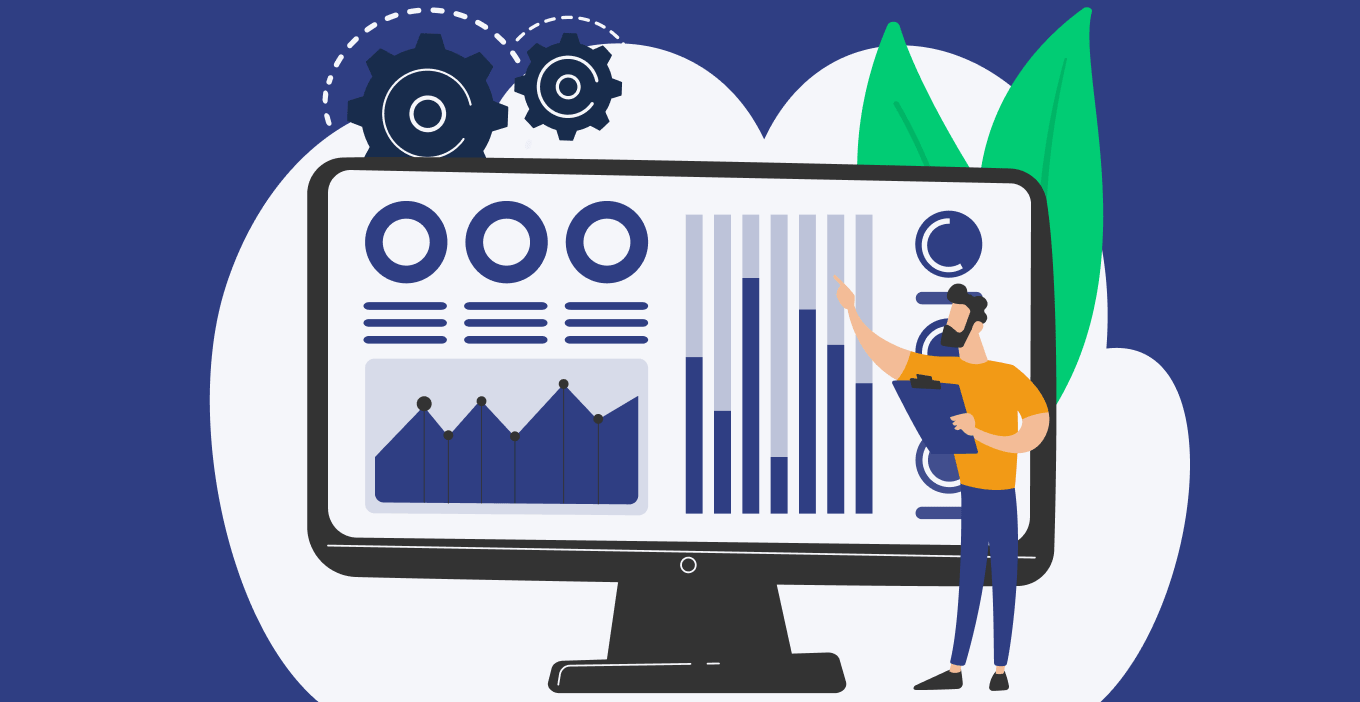Are you navigating the complex landscape of property management using intuition and market knowledge alone? Are you struggling with tracking tenant behavior, capturing market trends, scheduling maintenance, and monitoring financial performance? If so, introducing data analytics in your property management software for landlords can be a great game changer for you as a real estate investor.
It’s no secret that the property management field is rapidly evolving in the digital age. From rental residential to commercial properties, professionals in today’s era are making a pivotal shift toward data-driven decision-making. This new approach enables them to make decisions that echo the reality of the market rather than solely being governed by their gut feelings.
Understanding the Power of Data Analytics in Property Management Software for Landlords
The power of data analytics in property management software is undeniable. As landlords and property managers, we leverage data analytics to optimize our operations, make informed decisions, and ultimately, maximize returns.
Key Performance Indicators (KPIs) in Property Management
One major aspect of data analytics in property management software is the ability to monitor and measure Key Performance Indicators (KPIs). These include metrics such as Occupancy Rate, which is a critical indicator of how well your properties are performing, and Tenant Turnover Rate, which gives insights into tenant satisfaction and retention. Other key metrics include Maintenance Costs and Rent Collection Efficiency.
Monitoring these KPIs can help us identify areas of inefficiency, optimize rent pricing, and ensure timely rent payments, thereby improving overall property management efficiency and profitability.
How Data Analytics Transforms Real Estate Investment Decision-Making?
Data analytics is not just a tool for property management—it’s also transforming the way real estate investment decisions are made. By harnessing the power of data analytics, we can make more informed investment decisions based on facts, not gut feelings.
For instance, data analytics can help identify market trends and predict future property values, thereby guiding investors on when and where to invest.
The Importance of Data Analytics for Efficient Real Estate Asset Management
Efficient real estate asset management is crucial for maximizing returns. This is where data analytics comes into play. By analyzing data on tenant behavior, market trends, maintenance schedules, and financial performance, we can optimize various aspects of our operations.
For instance, predictive maintenance, driven by data, minimizes property downtime and improves the overall condition of properties. Data-driven strategies can also identify inefficiencies, allowing for cost reductions in maintenance, utilities, and operations.
The Benefits of Using Property Management Software for Landlords with Data Analytics
Different landlord tools are designed to streamline various aspects of property management, from tenant screening to rent collection and maintenance requests. By leveraging these tools, landlords can automate many routine tasks, ensuring they stay organized and responsive to tenant needs. This not only enhances the landlord-tenant relationship but also significantly reduces the time and effort spent on day-to-day property management activities.
Streamlining Management Operations with Real-Time Insights and Performance Data
One of the key benefits of property management software with data analytics is the ability to streamline management operations. By automating tasks such as rent collection, maintenance requests, and tenant screening, we free up valuable time that can be dedicated to higher-value tasks.
Real-time insights and performance data are crucial in this context. For instance, our software can help you monitor key metrics like occupancy rate, tenant turnover rate, and maintenance costs. By having these insights at your fingertips, you can make quick, informed decisions that help you optimize the performance of your properties.
Enhancing Tenant Satisfaction with Data-Driven Strategies
Another significant benefit of using data analytics in property management software is the potential to enhance tenant satisfaction. By analyzing tenant feedback and preferences, we can make adjustments that lead to higher satisfaction levels.
For instance, our software enables you to analyze tenant feedback, understand their preferences, and adjust your services accordingly. This data-driven approach to tenant satisfaction can help you retain tenants for longer periods, thereby reducing turnover and increasing your revenue.
Overcoming Challenges in Implementing Data-Driven Strategies
While the benefits of data-driven decision-making in property management are clear, implementing these strategies can be challenging. Property managers often face resistance to change, data security concerns, and the need for investments in technology and training.
By embracing the power of data analytics, you can transform your property management operations and set the stage for long-term success in the real estate investment industry.
The Future of Data Analytics in Property Management
As we look ahead, it’s clear that data analytics in property management software is more than just a passing trend. This powerful tool is set to revolutionize the industry, bringing about exciting changes and advancements.
The Role of Artificial Intelligence (AI) in Property Management
The first significant trend involves the use of Artificial Intelligence (AI). AI algorithms can analyze real estate data and make predictions about market trends, property values, and demand for specific types of properties. This information can be instrumental for real estate investors and property managers in guiding their clients in buying, selling, or renting properties.
Predictive Analytics: The Next Big Thing in Real Estate Investment
Another significant development is the rise of predictive analytics. This approach uses data to make informed predictions about future events. In real estate, predictive analytics can be used to forecast the worthiness of investments including when, where, and how to best invest.
Future Trends in Data-Driven Property Management
Looking ahead, we see a future where data analytics in property management software becomes even more integral. Key trends include the growing use of cloud-based solutions that provide scalability and remote accessibility and the increasing demand for property management and transaction solutions that simplify operations and sales processes.
We’re also witnessing a surge in the adoption of Proptech by both commercial and residential real estate markets, with real estate agents, property managers, owners, tenants, and buyers all becoming increasingly tech-savvy.


